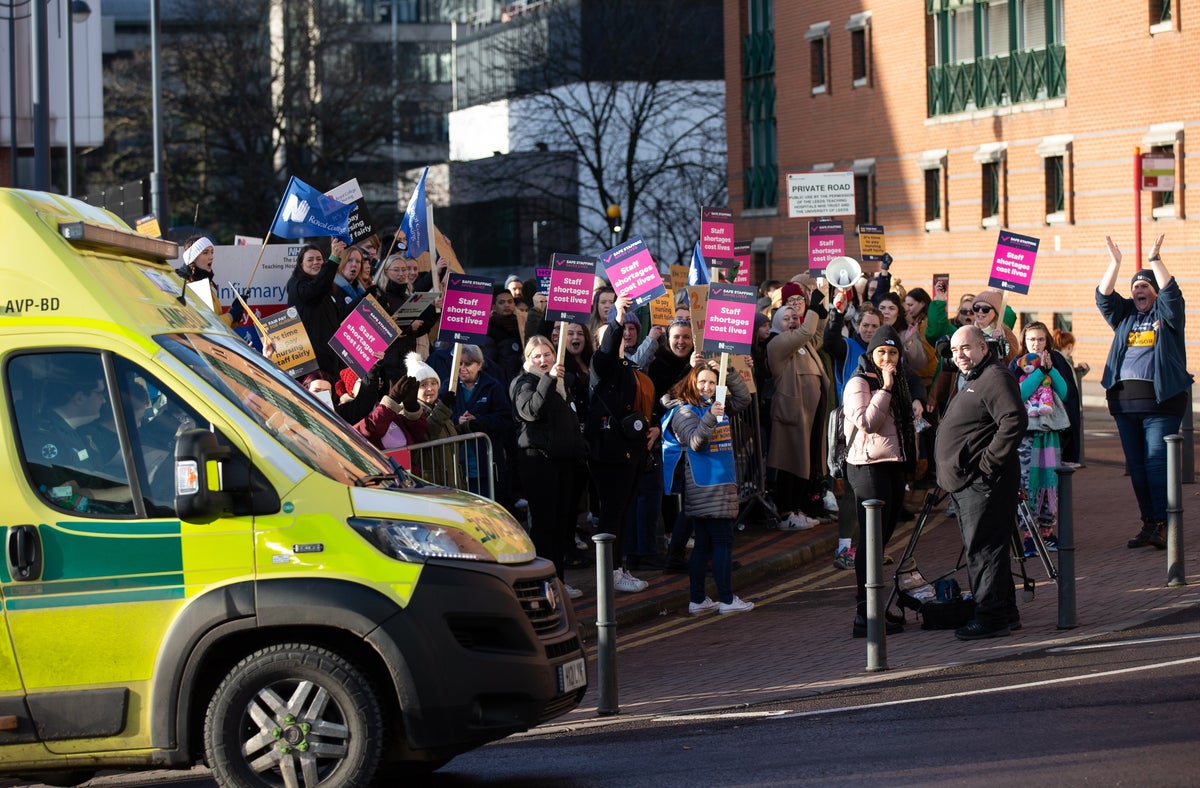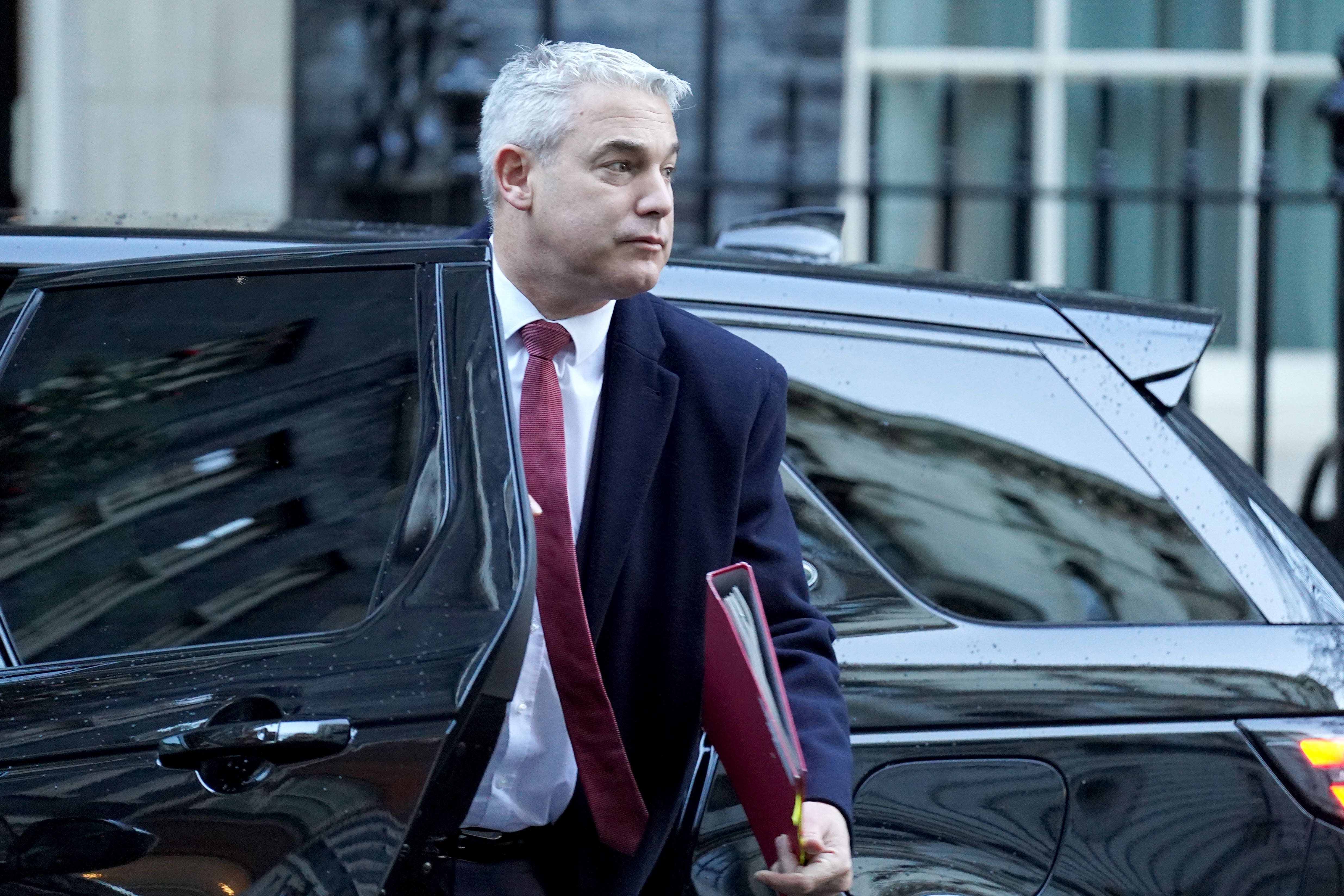
Rishi Sunak’s government will be to blame for any additional deaths which happen during Wednesday’s ambulance strike, a health union leader has said.
NHS leaders have warned that they cannot guarantee patients’ safety during huge disruption today, as thousands of ambulance staff walk out on the first of two one-day strikes.
Christina McAnea, Unison general secretary, said extra fatalities would “absolutely” be the fault of ministers because of their refusal to negotiate over a pay rise.
“They have been totally irresponsible,” she told TalkTV. “It’s completely irresponsible of them to refuse to open any kind of discussions or negotiations with us.”
But it an increasingly hostile dispute, health secretary Steve Barclay accused the unions of making a “conscious decision” to “inflict harm” on the public.
Mr Barclay urged the public to take “extra care” after talks with the unions on Tuesday failed to avert planned industrial action by around 25,000 staff in England and Wales.
“We now know that the NHS contingency plans will not cover all 999 calls. Ambulance unions have made a conscious choice to inflict harm on patients,” the health secretary wrote in The Telegraph.
Mr Barclay met with union officials on Tuesday to urge them to make sure category two emergency calls – including heart attacks and strokes – are answered as well as the most immediate life-threatening illnesses in category one.
But unions officials insisted that emergency cover had been negotiated with individual ambulance trusts, with regional differences down to regional pressures and decisions by trust leaders about how to prioritise calls.
Sources told The Independent that North East Ambulance Services and North West Ambulance services will only able to guarantee a response to category one cases – the most immediately life-threatening and require a response within 7 minutes – but not category two.
This means patients with suspected heart attacks and strokes, who need a response within 18 minutes, will not necessarily get ambulances.
Mr Barclay said unions “have been unwilling to give exemptions to cover all life-threatening and emergency calls – they’ve said they wanted to negotiate those on a local trust basis. It creates much greater uncertainty”.
The health secretary also suggested the Sunak government was looking at plans to restrict NHS staff’s rights when it comes to future strikes by imposing a minimum service law.
“Clearly we will need to look at data from today at whether exemptions the unions promised materialise,” he told GB News on Wednesday. “If we see significant patient harm, then as a government we will need to look at what is done in terms of minimum service levels.”

Ms McAnea said that strikes will “escalate” next year – suggesting 999 call handlers will also strike – government refuses to negotiate on pay. She said: “An option for us is that we bring out our 999 members as well.”
She added that Unison could be prepared to listen to an offer of a one-off bonus from the government this year, instead of a pay rise.
“We’d listen to any offer from the government,” McAnea explained. “I’m a negotiator and I’m happy to sit down with them. But I can’t negotiate with people who are saying [there is] no way we can talk about this.”
One national NHS figure told The Independent that “deaths and harm” were expected from the strike on Wednesday – saying many health service leaders were “gobsmacked at the reckless and wilful nature of government’s response” to industrial action.
“Harm is happening now, and we really can’t get through next few days with nurses followed by ambulances, without this creating more harm to patients,” they said.
A new poll by Savanta found that only 11 per cent of the public blame nurses for the strike. More than half, 54 per cent, blame the government and a quarter, 27 per cent, the trade unions.







